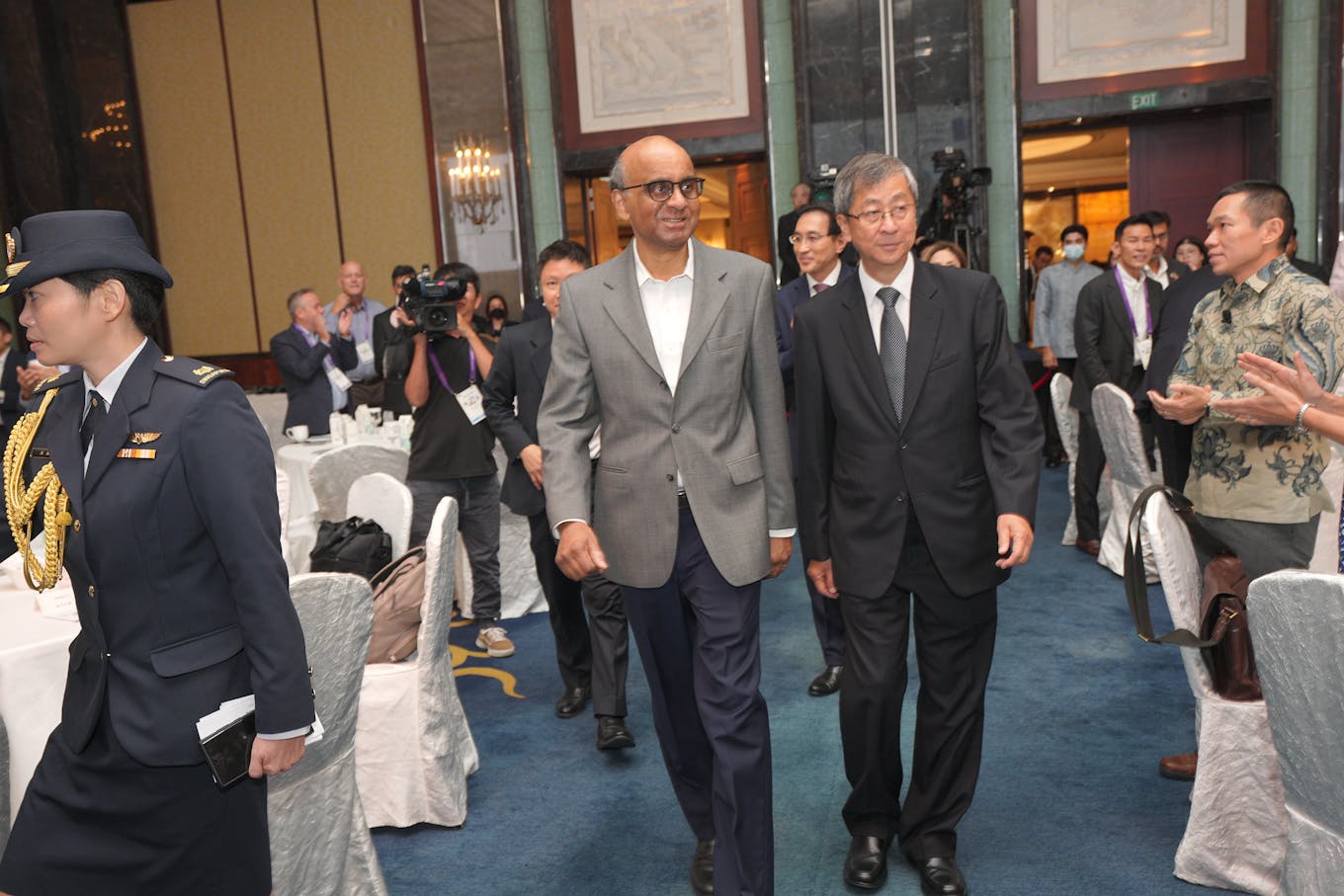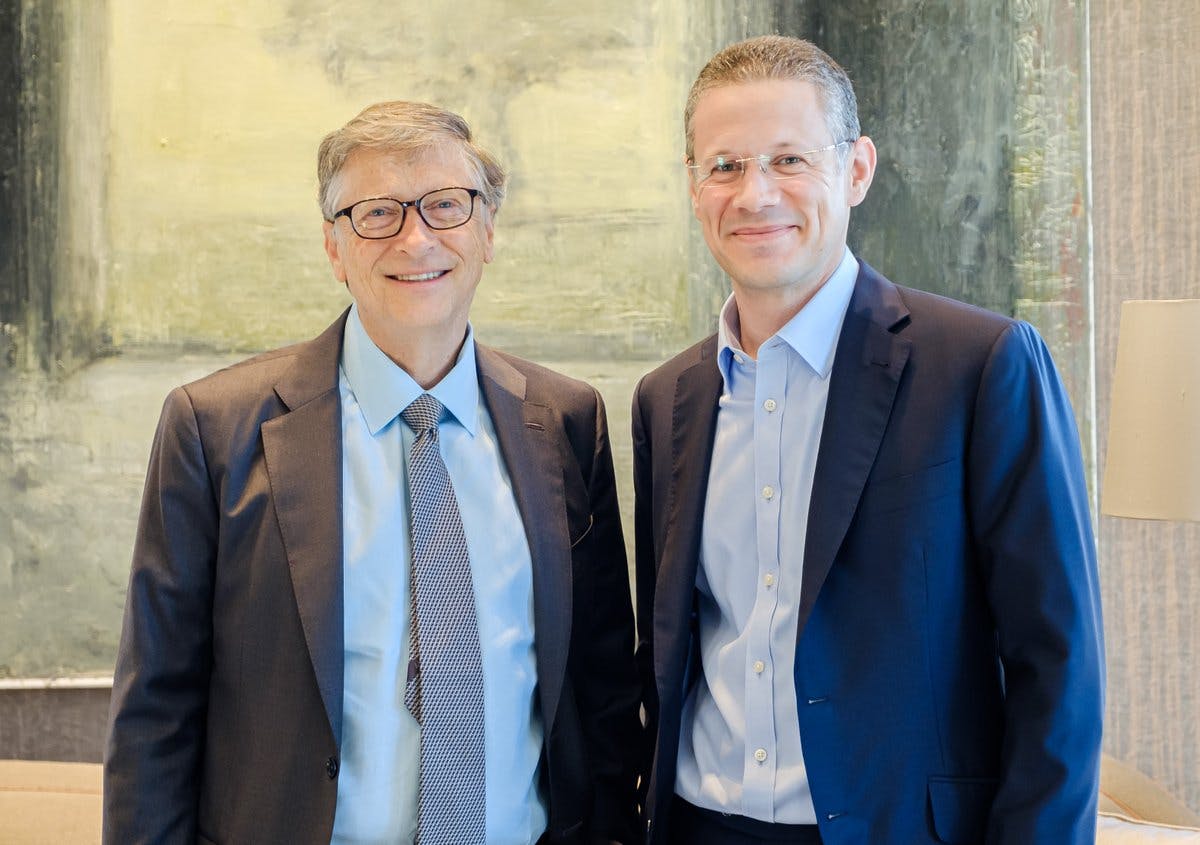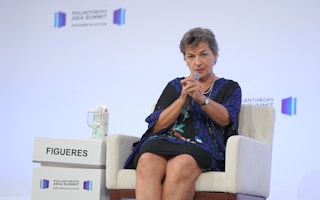Philanthropy is unique as a source of capital that can move fast and fix urgent climate problems, so it should not matter where the wealth of rich families or high net-worth individuals once came from, said former United Nations climate head Christiana Figueres.
To continue reading, subscribe to Eco‑Business.
There's something for everyone. We offer a range of subscription plans.
- Access our stories and receive our Insights Weekly newsletter with the free EB Member plan.
- Unlock unlimited access to our content and archive with EB Circle.
- Publish your content with EB Premium.
In recent years, charities like the Rockefeller Foundation, created with wealth generated from the oil industry more than a century ago, are deploying plans to make the fight against climate central to their work. In Asia, the growing heft of family offices and institutions devoted to impact work has spurred conversations on whether philanthropic giving might be key to unlocking much-needed capital for the region’s most pressing problems. Some of these business magnates had also built their fortunes on oil and gas, which is “not surprising”, said Figueres, and it is not helpful to point fingers at them for that history.
Speaking at a fireside chat at the Philanthropy Asia Summit in Singapore, Figueres, who in recent months has been openly critical of the failures of oil firms to transform their business models, was gentler on philanthropists who had past links with the fossil fuel sector.
She said: “They were only responding to the opportunities of the 20th century. You can’t blame them for that…and honestly, how is that going to help? Regardless of where their wealth came from, it is now time to turn the clock to the 21st century and respond to the new opportunities and responsibilities.”
“
Go ahead and pursue your personal interests and fascinations, but don’t choose them as your main philanthropic activity.
Christiana Figueres, co-founder, Global Optimism
In July this year, Figueres, the principal architect of the 2015 Paris climate accords and now the co-founder of a social and environmental impact enterprise, penned an op-ed in Al-Jazeera admitting that she was wrong to think that the fossil fuel industry could be an ally in the climate fight.
“I have for years held space for the oil and gas industry to finally wake up and stand up to its critical responsibility in history. I have done so because I was convinced the global economy could not be decarbonised without their constructive participation…But what the industry is doing with its unprecedented profits over the past 12 months has changed my mind,” she wrote.
Figueres, however, told the crowd of Asian philanthropists at the Singapore conference last Friday that, no matter what their past links with the fossil fuel sector are, they need to recognise that they can play a key role in tackling the climate crisis and act fast.
“Not everyone has, at their fingertips, capital that they can allocate to a strategic area for the long term. It is a huge privilege and a huge responsibility that the philanthropic sector bears,” she said.
She also reminded philanthropists to look beyond their “personal interests”. “I know that traditional philanthropy in Asia was guided by these interests and curiosities…but I’m sorry, we simply do not have the luxury to do so now,” she said. “We need a new way of looking at philanthropy, and to ask: Can I pursue my interest, but within the framework of public, social or environmental need?”
“Go ahead and pursue your fascinations, but don’t choose them as your main philanthropic activity,” she advised.
Asia-focused charity growing
The third edition of the Philanthropy Asia Summit saw the official launch of an Asia-focused alliance backed by Temasek Trust, the philanthropic arm of Singapore’s Temasek Holdings, institutions such as the Bill & Melinda Gates Foundation and Tanoto Foundation, as well as American billionaire investor Ray Dalio. The alliance, with more than 80 members and partners, has attracted US$777 million (more than S$1 billion) in pledges so far, underscoring the rising interest in Asia-related charity.
Figueres said she is optimistic that the Global South and developing countries in Southeast Asia can “leapfrog” in adopting new technological solutions and innovations, much faster than anywhere else in the world, as these economies are less burdened by legacy infrastructure that supported a fossil fuel-dominant grid.

Singapore’s newly sworn-in President Tharman Shanmugaratnam (left) made a surprise appearance at the Philanthropy Asia Summit. He will be patron of the new philanthropy alliance launched by Temasek Trust. He is accompanied by Lim Boon Heng (right), chairman of Temasek Holdings, in this photo. Image: Temasek Trust.
Asked about the oft-cited US$1 trillion funding that needs to be mobilised annually by 2030 to meet the scale of investment needed for the Global South to reach its climate goals, Figueres suggested for the audience to take a different perspective and not focus only on the scarcities of the Global South.
Figueres said it is clear that the industrialisation of the Global North over the past two centuries has generated most of the human-induced greenhouse gas (GHG) emissions that contribute to climate change.
“It’s not ideology. It’s not a false accusation, but simply mathematics…so the trillions of dollars we are talking about, in a way, are a historical debt to the Global South, which has disproportionately suffered from the effects of the climate crisis. But here’s my question: Might that not also mean that the Global South can disproportionately benefit from climate change, if we look at it in a different light? I think that is what we should focus on.”
Figueres is especially bullish about Southeast Asia and what the decreasing cost of renewables deployment would mean for the region, a global hotspot for energy demand. “There is a huge opportunity to turn what we always lament about into something that can drive philanthropy and catalytic financing,” she said.
COP28 a circus?
At the summit, Figueres also elaborated on her recent criticism of the UN COP summit as a “circus”.
The former executive secretary of the UN Framework Convention on Climate Change (UNFCCC) said that COP was designed to be a multilateral process for sovereign governments to come together to decide on a plan for decarbonising the global economy – or what is essentially the Paris Agreement. “That has been negotiated and accepted. So one has to wonder: what’s the purpose of COP now?”
The upcoming COP28 climate summit, to be hosted by the United Arab Emirates, has been under scrutiny, especially as the proceedings will be led by an oil executive. Figueres goes further to say that there is no need for government delegates to be at COP; instead, the baton should be passed to the private sector, the finance sector and civil society.
“Policies on climate change or human development need not be negotiated multilaterally. They should be implemented domestically,” she argued. “To all the governments going to COP28 this December, my question is: Have you done your work at home? Have you put incentives and measures in place to do what you have committed to do? You don’t have to negotiate that with anyone else.”

Badr Jafar (right) in a photo with American billionaire and philanthropist Bill Gates. Jafar frequently hosts gatherings for the philanthropy sector. Image: Badr Jafar / X
In a pre-recorded message for the summit, Badr Jafar, COP28 special representative for business and philanthropy, said that climate and nature present the greatest opportunities for philanthropic intervention, and that his “obsession and priority” is to help build infrastructure across Asia that will support such catalytic funding. Jafar, who is also chief executive of Crescent Enterprises, a diversified conglomerate headquartered in the UAE, announced that he will be launching a centre for strategic philanthropy in Asia in the coming year.
The UAE presidency is set to host a first-of-its-kind philanthropy forum during the COP28 summit, convening global business and philanthropy leaders behind an action agenda that has a particular focus on advancing climate action and sustainability goals in the Global South.
At the Philanthropy Asia Summit, impact-focused projects were also featured. Temasek Trust, alongside Singapore-based DBS Foundation which is dedicated to growing social enterprises, announced that they will launch a new digital marketplace that will help direct investments from accredited philanthropists, family offices, foundations and funders to projects that tackle environmental and social challenges. The first phase of the new platform will go live in the first half of 2024.
Correction note: An earlier version of the story stated that the Philanthropy Asia Alliance has attracted more than US$730 million in pledges so far. The actual quantum figure pledged is US$777 million.








